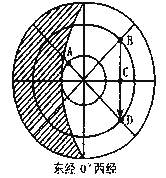阅读下列材料
材料一:
远在意大利旅行家马可波罗1275年抵达元上都之前一千多年,曾有一个罗马商团经丝绸之路沙漠路线来到黄河流域,惊动了东汉洛阳宫廷。这是欧洲与中国有据可考的首次直接交往。范晔的《后汉书》和古罗马推罗城地理学家马林(Marinus of Tyre)的《地理学导论》,都著录了古罗马人这次神秘的中国之行。
材料二:
公元2世纪希腊学者托勒密(claudius Ptolemy)(公元85~165年)曾著《地理志》一书,书中详述自幼发拉底河口,经美索不达米亚、米地亚、爱克巴塔那(阿蛮)、帕提亚(安息)、赫克桐及罗斯(和椟)、马嘉那、安梯俄齐亚(木鹿)、巴克特拉(大夏)、石塔,进入中国的路线和方位。这是西方古典作家第一个对“丝绸之路”有记载的学者。
材料三:
冬十一月,西域蒙奇、兜勒遣使内附。——《后汉书·和帝纪》永元十二年(公元100年),一说:蒙奇是安息王朝东部省份,兜勒就是色雷斯。
材料四:
于是五十余国悉纳质内属,其条支、安息诸国,至于海濒,四万里外,皆重译贡献。(永元)九年,班超遣椽甘英穷临西海而还……
于是远国蒙奇、兜勒,皆来归服,遣使贡献。——《后汉书·西域传》
请回答:
汉代曾经有张骞、班超、甘英三位出使西域的使者,他们分别在什么时期
参考答案:汉代曾经有张骞、班超、甘英三位出使西域的使者。他们都是在两汉时期。
张骞(约公元前164~前114年),汉中郡城固(今陕西省城固县)人,汉武帝时期开拓了丝绸之路,并从西域诸国引进了汗血马、葡萄、苜蓿、石榴、胡桃、胡麻等。
班超是东汉时期人,永平十六年(73年),奉车都尉窦固出兵攻打匈奴,班超随从北征,留下了“不入虎穴,焉得虎子”的典故,后来在西域一直待了22年,直到95年。后人称之为“班定远”。
甘英曾于汉和帝永元九年(97年)奉西域都护班超之命出使大秦(罗马帝国)。他率领使团一行从龟兹(今新疆库车)出发,经条支(今伊拉克境内)、安息(即波斯帕提亚王国,今伊朗境内)诸国,到达了安息西界的西海(今波斯湾)沿岸。这次出使虽未到达大秦,但增进了中国人对当时中亚各国的了解。

